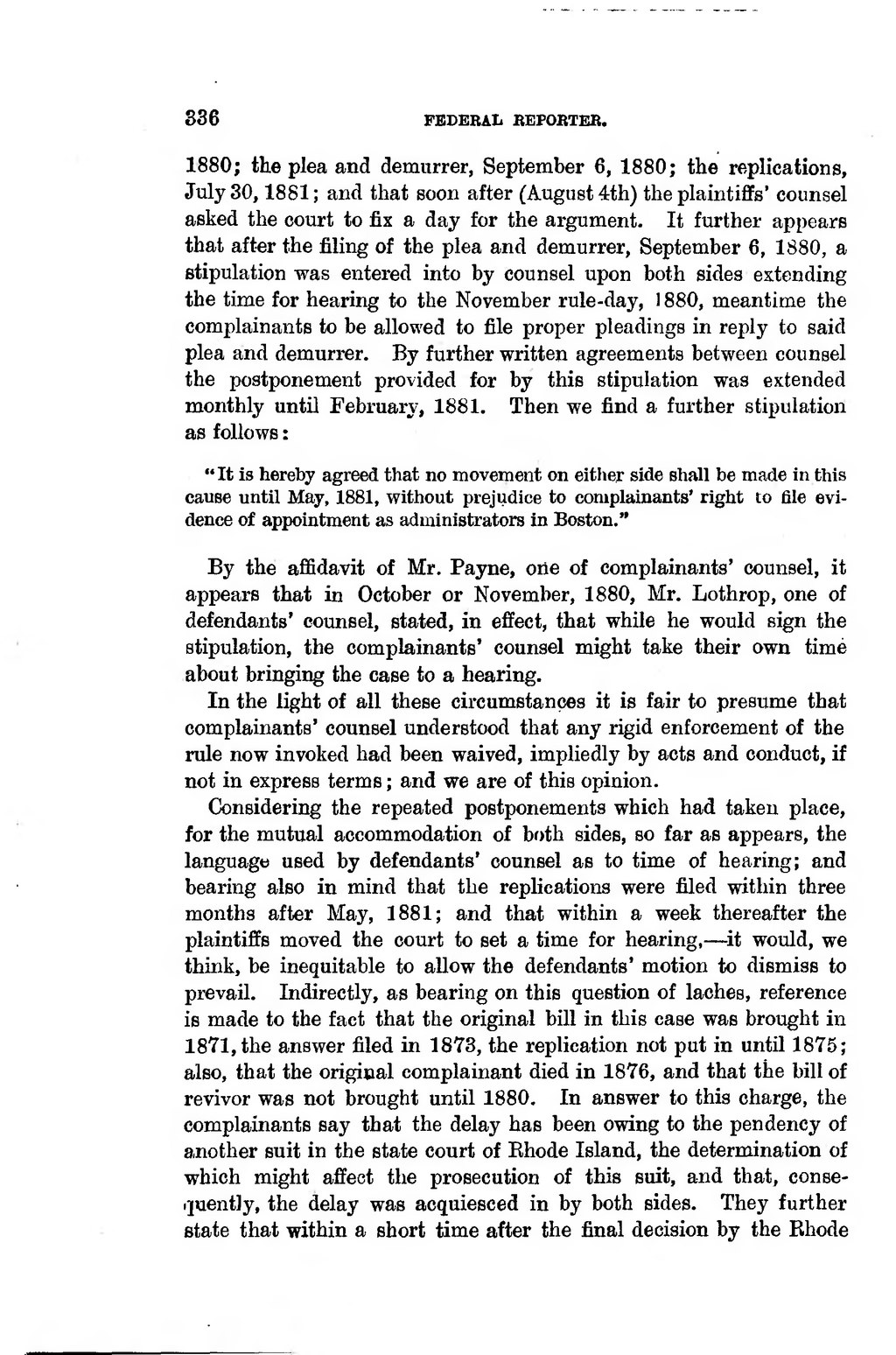836 FEDERAL REFOBTER. �1880; the plea and demurrer, September 6, 1880; the replications, JulySO, 1881; and that soon after (Augu8t4th) the plaintiflfs' counsel asked the court to fix a day for the argument. It further appears that after the filing of the plea and demurrer, September 6, 1880, a stipulation was entered into by counsel upon both sides extending the time for hearing to the November rule-day, 1880, meantime the complainants to be allowed to file proper pleadings in reply to said plea and demurrer. By further written agreements between counsel the postponement provided for by this stipulation was extended monthly until February, 1881. Then we find a further stipulation as f ollows : �"It is hereby agreed that no movement on either side shall be made in this cause until May, 1881, without prejudice to complainants' right to flle evi- dence of appointment as administrators in Boston." �By the affidavit of Mr. Payne, orie of complainants' counsel, it appears that in October or November, 1880, Mr. Lothrop, one of defendants' counsel, stated, in effect, that while he would sign the stipulation, the complainants' counsel might take their own time about bringing the case to a hearing. �In the light of all these circumstances it is fair to presume that complainants' counsel understood that any rigid enforcement of the rule now invoked had been waived, impliedly by acts and conduct, if not in express terms; and we are of this opinion. �Considering the repeated postponements which had takeu place, for the mutual accommodation of both sides, bo far as appears, the languagtj used by defendants' counsel as to time of hearing; and hearing also in mind that the replications were filed within three months after May, 1881; and that within a week thereafter the plaintiffs moved the court to set a time for hearing, — it would, we think, be inequitable to allow the defendants' motion to dismiss to prevail. Indirectly, as bearing on this question of laches, reference is made to the fact that the original bill in this case was brought in 1871, the answer filed in 1873, the replication not put in until 1875; also, that the original complainant died in 1876, and that the bill of revivor was not brought until 1880. In answer to this charge, the complainants say that the delay has been owing to the pendency of another suit in the state court of Rhode Island, the determination of which might affect the prosecution of this suit, and that, conse- ijuently, the delay was acquiesced in by both sides. They further state that within a short time after the final decision by the Rhode ��� �
